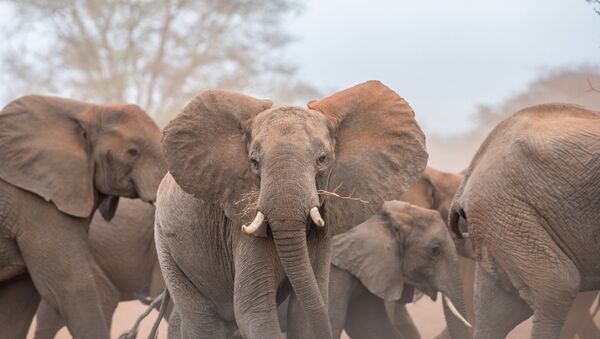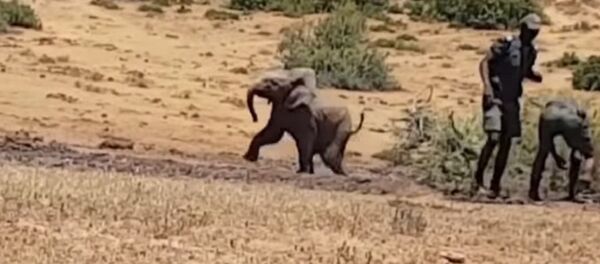According to an incident report obtained by NPR, many of the elephants, which were stripped of their ivory tusks, were killed within the last few weeks near the Okavango Delta wildlife sanctuary. Three white rhinos were previously found killed by poachers some three months ago in the same area as the elephants.
"All carcasses [were] presumed to be poached, because all of them had their skulls chopped to remove their tusks," the report states. "Poachers tried to hide their crimes by concealing the mounds of rotting flesh with drying bushes."
"The varying classification and age of carcasses is indicative of a poaching frenzy which has been ongoing in the same area for a long time," the report said.
Mike Chase, who took part in writing the report, told the BBC Monday that the discovery is the largest case of poaching in Africa that he's encountered to date. "I'm shocked. I'm completely astounded," he said.
"When I compare this to figures and data from the Great Elephant Census, which I conducted in 2015, we are recording double the number of freshly poached elephants than anywhere else in Africa," Chase added.
The Great Elephant Census indicated in 2016 that some 130,000 elephants were thriving in Botswana, which has long been praised for its protection of elephants. Although it also revealed that surveyed neighboring countries saw their elephant populations drop an estimated 30 percent between 2007 and 2014 due to rampant poaching, and Botswana could soon be included in that statistic due to the current administration's policies.
A month after Botswanan President Mokgweetsi Masisi took office, he moved to disarm the country's anti-poaching unit in May, ending Botswana's shoot-to-kill policy against poachers. The move was done without an explanation, the BBC reported.
With the nonprofit's survey only half way done, it's unclear what else the organization may discover. Chase told the publication that "it's open season for poachers."



